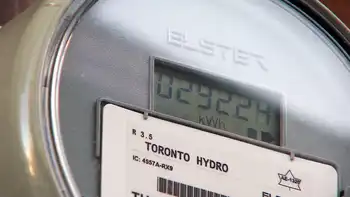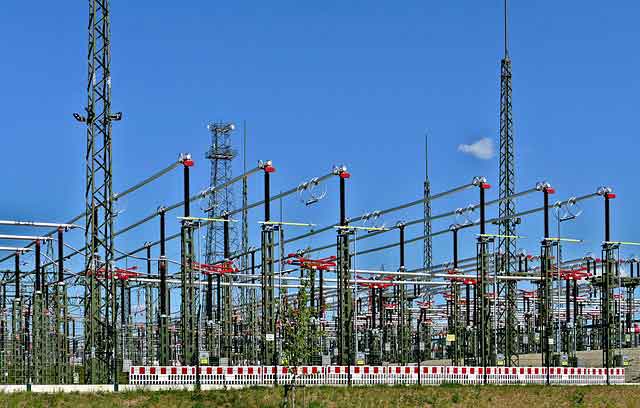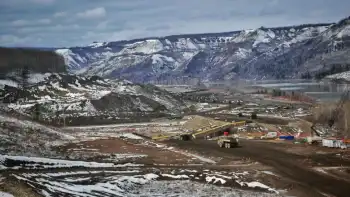Expert panel endorses two new Edmonton-Calgary transmission lines
By Edmonton Journal
High Voltage Maintenance Training Online
Our customized live online or in‑person group training can be delivered to your staff at your location.

- Live Online
- 12 hours Instructor-led
- Group Training Available
But critics of the proposed power lines say the panelÂ’s report is designed to provide political cover to the Conservative government as it heads into a spring election.
The panel, headed by Brian Heidecker, endorsed the two proposed lines as outlined in the Electric Statutes Amendment Act, and the subject of major controversy in parts of rural Alberta for the past three years.
The two new 500-kV, DC lines will meet the demand for the next 30 years and will add about $3 a month to residential power bills, said Heidecker.
“Proceeding with both lines is reasonable and will reduce the slight risk of not having enough transmission,” said Heidecker, former chairman of the board of governors at the University of Alberta.
“One of these lines is needed right away and the other is required very soon after.”
The four members also recommended that the Electric Statues Amendment Act be amended so that future decisions about major transmission expansion would be sent to Alberta Utilities Commission for approval, as was the practice until 2009.
At hearings in January, the committee heard many industry and consumer groups say the province should do away with the act.
The panel also downplayed the possibility that such a major grid expansion is geared to electricity exports to the U.S.
That “just doesn’t make sense” given the U.S. has strong supplies of shale gas and other clean burning fuel, said Heidecker.
The review panel was appointed by the Redford government after continued protest by rural landowners about the proposed new lines and the legislation, which removed the need for a public hearing to determine if the lines were necessary.
Energy Minister Ted Morton, who last fall questioned whether both power lines were needed, said the government will respond to the panelÂ’s report by the end of the month.
Other panel members are Joseph Doucet, business professor at the University of Alberta, Henry Yip, chairman of the Edmonton Economic Development Corporation and chair of an energy department committee that reviews transmission costs, and Saskatchewan electrical engineer Roy Billinton, an expert in grid reliability issues.
Altalink, which is assigned under the legislation to build the western Edmonton-Calgary line, was pleased with the panel’s recommendations and is ready to take specific route and construction plans to the AUC for approval — pending the government’s response to the panel.
“We are not surprised, given the need for these lines was first studied in 2005,” said Scott Thon, noting that it would take about three years to complete the approval process and build the line.
In the next 10 to 20 years, the province will be forced to shut down most of its coal-burning power plants under federal regulations controlling carbon emissions, and that means a lot of new power generation must be built, Thon said. The key is robust transmission.
“The transmission grid is critical and if its open, everyone gets to compete,” said Thon.
But Keith Wilson, lawyer for a landowners group, said he was surprised the panelÂ’s conclusions failed to take into account the concerns that industrial power users took the hearings.
Newsprint companies and steel companies told the panel at January hearings they fear the two lines are a “massive overbuild” and will send power rates much higher, making their business uncompetitive.
“I can only conclude it was a politically motivated result,” said Wilson, noting that Heidecker is a former PC party vice-president.
Calgary-based Atco, a major power generator, was pleased with the panelÂ’s work. Atco is keen to build a new line further east to handle power from hydro projects it is investigating on the Slave and Athabasca Rivers.
“We do believe this is the right decision, to enable the economy to grow and create jobs,” said Siegfried Kiefer, Atco chief of operations. “We are on the verge of a dramatic shift in sources of electricity.”
But Colleen Boddez president of the land owners council representing people west of Edmonton, said the report is “a whitewash.” “Why not give the AUC back their job for these two lines, if you are recommended they get the job for future lines?” said Boddez.
The original AUC hearings into the lines were abandoned three years ago after it was revealed that private detectives had been hired to spy on landowners opposed to the lines.











